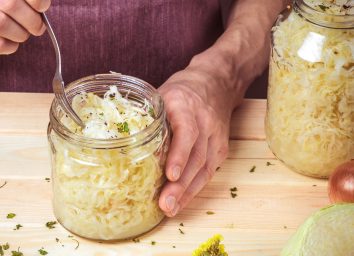Surefire Ways to Protect Your Gut, Say Dietitians
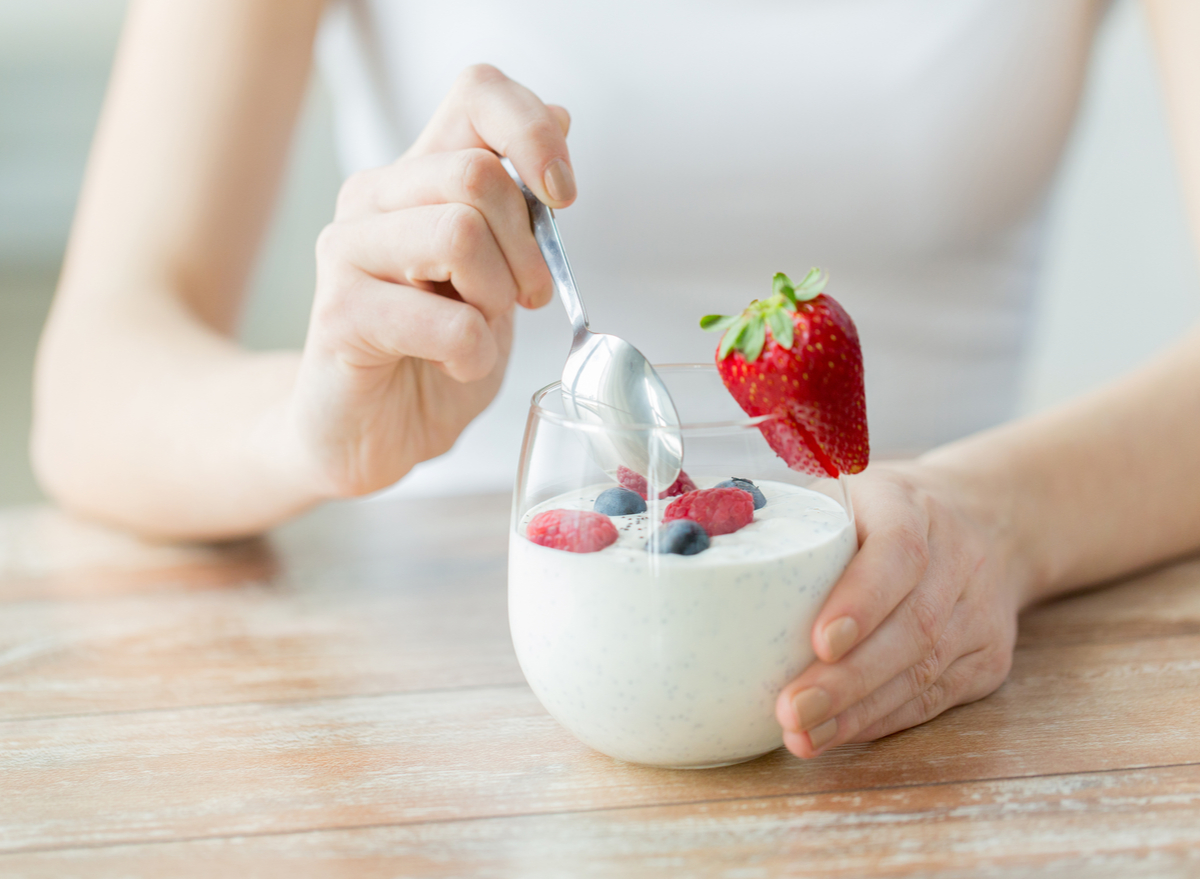
Gut health has become an increasingly hot topic in recent years—and with good reason. Over the last few decades, emerging research has discovered links between gut health and the immune system, mood and mental health, and has suggested it may play a role in autoimmune diseases, skin conditions, and even cancer. In other words, you might be able to prevent—and resolve—a number of physical and mental issues by simply taking care of your microbiome.
According to Katie Krejci, MS, RD, LD, IFNCP, 70% of your body’s lymphocytes—white blood cells that play a key role in immune function—are in your gut. Not only that, but 75% of the feel-good neurotransmitters—like serotonin and dopamine—are also produced there.
“While the science of the microbiome is still in its infancy, studies suggest that it is one of the most important regulators of overall health with a potential effect on digestion, weight, skin, allergies, hormones, and more,” says Mia Syn, RD, MS.
What you eat has a significant impact on gut health. While certain foods can help support a healthy, balanced microbiome, others can promote an imbalance that has been linked to gastrointestinal conditions such as irritable bowel syndrome, as well as other chronic conditions and diseases like obesity, asthma, colitis, type 2 diabetes, and cardiovascular disease.
With all that in mind, experts strongly advise heeding the following tips for protecting your gut. Then, be sure to read The #1 Best Juice to Drink Every Day, Says Science.
Eat a variety of plant-based foods.
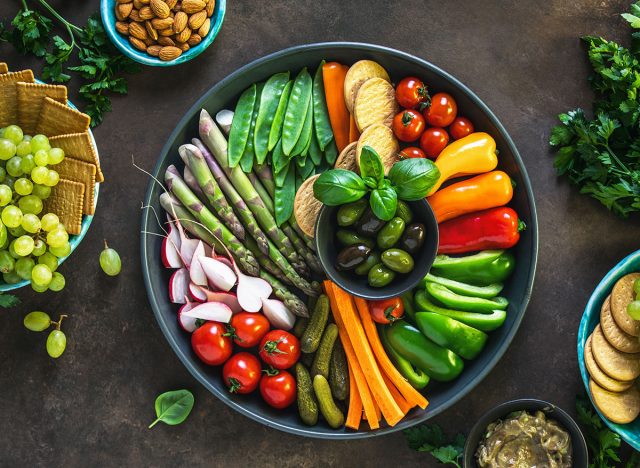
Next time you go grocery shopping, make it a point to fill your cart with a range of veggies, fruits, whole grains, beans, legumes, nuts, and seeds. According to Cassie Madsen, Ms, RD, The American Gut Project has found that those who eat 30 or more plant foods per week have more diversity of gut bacteria than those who eat fewer than 10 plants per week. But that’s not all.
“Plants are high in fiber,” says Amy Adams, RD, LDN. “Fiber feeds our gut and increases our good microbes. If the microbes are fed well, they will multiply, which strengthens our gut health. When fiber is fermented, it produces short-chain fatty acids, which help to thicken the mucus walls in our gastrointestinal tract, creating a barrier and halting bad bacteria from migrating. And different plants provide different nutrients, prebiotics, and polyphenols, which leads to a more diverse gut.”
Get plenty of prebiotics and probiotics.
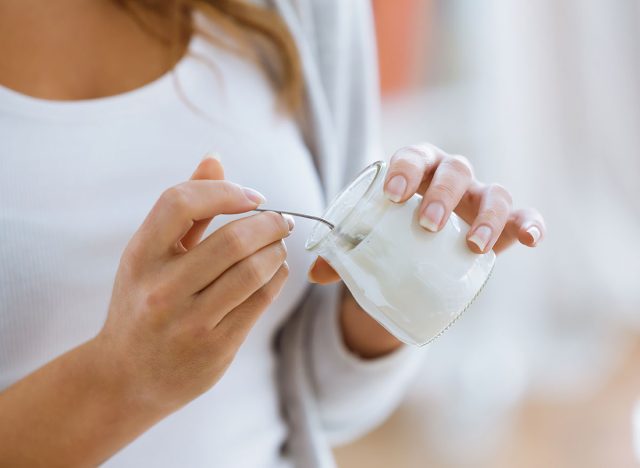
“Consuming probiotics is one of the best things you can do to re-balance your gut,” says Krejci. “Probiotics have potent antimicrobial activity, they improve how the intestinal wall’s function and they have a positive impact on the gut immune cells.”
Krejci’s favorite way to get probiotics is through a variety of foods rich in this friendly bacteria, such as yogurt, kefir, kombucha, kimchi, and fermented vegetables. She advises consuming these several times per day and from a variety of sources for maximum benefits. But if you aren’t getting enough probiotics through your diet alone, Syn recommends seeking out a high-quality probiotic supplement, like TruBiotics.
“I like this one because it’s comprised of the two most clinically studied types of good bacteria—Bifidobacterium and lactobacillus,” she explains. “Additionally, the strains used have one of the best survivability rates in the gastrointestinal track among all probiotic strains.”
In addition to probiotics, experts say you should prioritize prebiotics as well. These indigestible fibers feed the good bacteria in your gut so they can flourish.
“The microbiome ferments the prebiotics into short-chain fatty acids,” says Krejci. “Short-chain fatty acids have potent anti-inflammatory effects and strengthen the intestinal barrier to keep pathogens from getting into the bloodstream.”
According to Krejci and Syn, the best food sources of prebiotics are artichokes, green bananas, avocado, garlic, onions, leeks, and root vegetables.
Avoid processed foods.
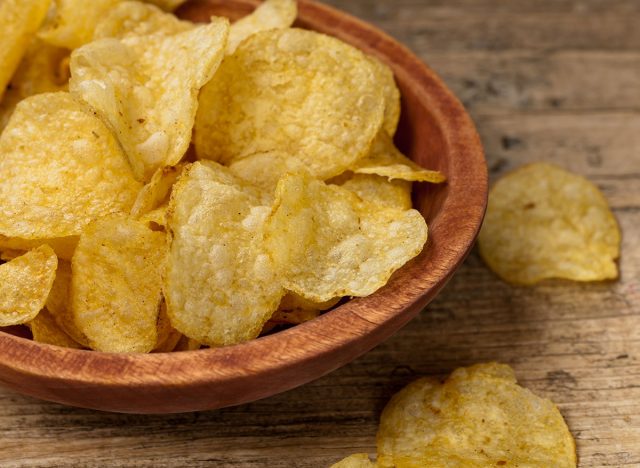
Adams points out that ultra-processed foods like cereals with added sugar, cookies, and chips usually contain little to no fiber—especially when made with refined flours rather than whole grains.
“Fiber helps to bulk up our stool and relieve constipation,” she continues. “Having regular bowel movements reduces the time that waste hangs around in your colon. Chronically constipated individuals are found to have higher levels of methane-producing bacteria in their intestines. Methane not only slows down your gastrointestinal tract even more, but it can also migrate from the colon to the small intestine, and cause a condition known as small intestinal bacterial overgrowth (SIBO), which, in severe cases can lead to malabsorption and micronutrient deficiencies.”
In case you needed further incentive to ditch the packaged, preservative-laden snacks—a 2021 study published in the journal Gut found that people who consumed a diet high in processed foods, fast food, and sugar had greater levels of destructive bacteria that produce toxins harmful to the gut.
Limit your alcohol intake.

Experts advise thinking twice before pouring that second glass of wine—the more alcohol you drink, the more damage you’re likely doing to your gut.
“Research suggests that chronic alcohol consumption can induce gut inflammation and negatively alter intestinal microbiota composition and function,” says Syn.
Susan Kelly, RDN with Pacific Analytics, adds that the consistent gut inflammation caused by alcohol can also lead to heartburn, bacterial infections, and even ulcers.
Ditch the artificial sweeteners.
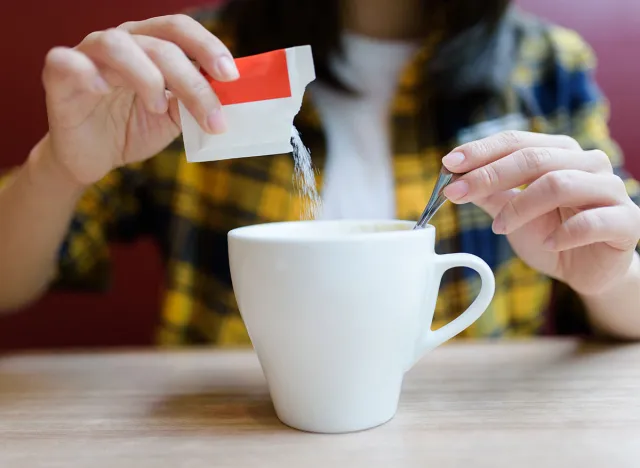
Particularly if you’re trying to lose weight, it may be tempting to opt for artificial sweeteners—but before you do so, consider this: a slew of studies have shown that these zero-calorie alternatives can wreak some major havoc on your gut. Specifically, a 2019 review published in the journal Advanced Nutrition revealed that sucralose and stevia can negatively impact bacteria in the gut.
In fact, some research has suggested that consuming artificial sweeteners can lead to glucose intolerance. What’s worse, a 2021 study in the International Journal of Molecular Sciences found artificial sweeteners can make normal and healthy gut bacteria become pathogenic.
“These sweeteners create an imbalance in your microbiome, which increases the risk of metabolic diseases—including diabetes and heart disease,” says Kelly.


